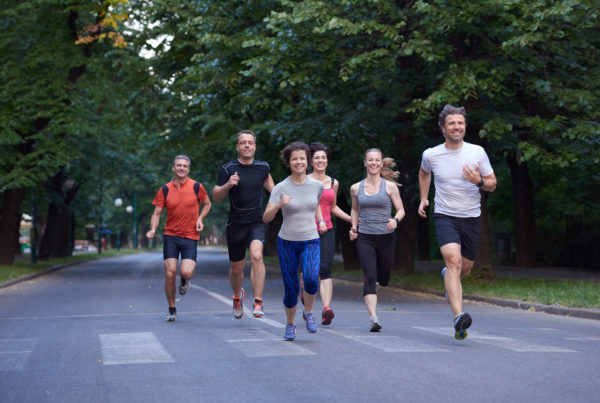”Kentucky, do you know what empathy is? Empathy is relating to another person's feelings and can have a positive impact on relationships and overall wellbeing. Read this week's article to learn more!
Reading time: 7 Minutes
MWi Hacks:
- Learn about empathy and how to become more empathetic to improve your own wellbeing and the quality of your relationships.
MWi Summary:
- Empathy involves feeling with others, not just for them, by truly understanding their emotions and experiences, rather than guessing or sympathizing from afar.
- It fosters openness in relationships, enhances communication, strengthens emotional intelligence, and builds deeper connections by allowing you to understand and support others.
- Practice mindfulness, engage with diverse experiences, listen actively, pay attention to non-verbal cues, challenge biases, ask thoughtful questions, seek feedback, and step outside your comfort zone.
- Cultivating empathy improves relationships, mental health, and helps you navigate complex emotional situations by fostering a more understanding and supportive environment.
Empathy is important for your wellbeing. Develop your empathy skills and learn how to become more empathetic with 8 exercises to show and communicate empathy.
You know when you’re having a rough day, and someone just gets it? That feeling of being seen and understood is empathy in action.
When we show people empathy, we cultivate an openness and connection that helps everyone feel more supported and less alone. Empathy can be a true game-changer when it comes to caring for our wellbeing and relationships. Luckily, you can improve your empathy skills with a little mindfulness, willingness, and commitment.
What is empathy?
The word empathy is often used interchangeably with the words sympathy and compassion, but they aren’t the same thing.
Empathy is about feeling with people, not just feeling for them. When you’re empathetic, you’re not just guessing how someone feels. You’re right there with them, feeling it too.
Why is empathy important? The benefits of empathy
Empathy is the glue that holds our interactions together. When we understand what someone else is going through, we can respond in a way that makes sense and feels authentic. Here are a few of the many mental and physical benefits to being more empathetic.
Empathy encourages openness
When you know someone gets you, you’re more likely to share your true feelings. This openness can turn casual acquaintances into close friends and make good relationships even better.
Empathy can make you and the other person feel better
Sharing joy is a two-for-one deal. When you’re happy for someone else, it doubles your happiness. And when you’re there for someone during tough times, you help carry the load, making it lighter for both of you.
Empathy can improve communication
Have you ever played a game of telephone where the message gets all twisted by the end? A lack of empathy can do that to your real conversations. Understanding others helps clear up misunderstandings before they start.
Empathy helps to strengthen emotional intelligence
Empathy helps us understand and appreciate others for who they are. It encourages acceptance, open-mindedness and patience when interacting with those who have different values or beliefs from our own. Empathy for other people’s experiences also helps us forgive and let go.
Empathy encourages connection
Being empathetic is like having a sixth sense. You’re more likely to be aware of what’s going on for the people around you, making you a better friend, family member, and co-worker
How to be more empathetic: 8 exercises to develop and show empathy
Building empathy is like exercising a muscle — the more you work on it, the stronger it gets. There are some simple, straightforward steps you can take to work on your empathetic skills.
Remember that developing empathy doesn’t happen overnight. It’s a journey where each step you take makes a difference to your interactions, your relationships, and your mental health. So remember be patient with yourself.
1. Practice mindfulness to build awareness
When it comes to moving towards being a more empathetic person, you may have to build awareness before you can develop empathy. By engaging in mindfulness practices in your daily life, you’ll strengthen your ability to be fully present with what’s around you, a necessary skill to to becoming a more empathetic person.
2. Be curious about other people’s experiences
Dive into books, movies, and conversations to help you imagine what someone else’s lived experience might be like. Putting yourself in another person’s shoes can help you deepen your understanding of others. Ask yourself what emotions you’d feel in their position and what type of support you’d want to be offered.
3. Listen with your full attention
Active listening is a skill that can be developed. When someone’s talking, focus on their words and feelings, not what you’ll say next. Reflect back what they say to show you’re really listening.
4. Pay attention to non-verbal clues
People say a lot without words. Keep an eye out for facial expressions, gestures, and posture. These silent signals can tell you how someone is feeling.
5. Question your biases and what you ‘think’ you know
We all make snap judgments sometimes and most of us tend to see the world through a specific lens that may not be shared by everyone. Notice when you’re making a judgment and seek to understand other possible perspectives on the topic or situation.
6. Ask questions instead of making assumptions
Instead of guessing at what someone else is feeling, ask them. Thoughtful questions demonstrate a level of care and a curiosity to understand another person’s unique experiences and point of view.
7. Ask for feedback
One of the most effective ways to develop your empathy is to ask for feedback from others. The next time you’re connecting with someone, wait and ask them whether they feel like you’ve understood them.
8. Cultivate humility by stepping out of your comfort zone
Nothing helps us develop empathy like getting out of our comfort zone. New experiences and challenges cultivate a sense of humility which can help us appreciate feelings we might not be familiar with. This, in turn, can encourage us to meet others with more empathy.
How to be more empathetic: 8 exercises to develop empathy. Retrieved from https://www.calm.com/blog/how-to-be-more-empathetic




